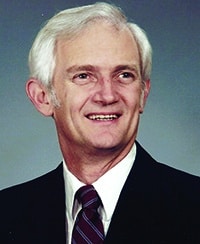Editor’s note: This is the second installment of a six-part series on the prevention of church conflict. The author is Wade Paris, former pastor and retired director of missions. He also is a former Word&Way trustee.

Wade Paris
Hans Toch noted the seeds of discontentment are often sown at the point of entry (Toch, Hans. The Social Psychology of Social Movement. Kansas City, Bobbs-Merrill Co., Inc. 1965). This is quite true in the church.
Rev. Remnant had just become pastor of ABC Church. On Monday following his first Sunday he gathered with Vacation Bible School workers to prepare for Bible School, which was to begin the following week. Vacation Bible School was very important to this church of young couples with many children.
As they began the meeting, a teacher asked, “Pastor, when will we get our literature?” He was caught off-guard. He assumed everyone had their materials.
He turned to the church secretary and asked, “Has the literature not come?” With what appeared to be a smirk, she answered, “The chairman of deacons told me not to spend any money on anything. So, I did not order it.”
Rev. Remnant was caught in the middle of a church conflict. The secretary, who should have told him this earlier, had set him up. (Remnant learned later she did not want him to come as pastor.
He turned to the workers and said, “I am sorry. I did not know there was no literature. I [with emphasis on the I] will see to it that the literature is here by Wednesday. You cannot have Vacation Bible School without literature.”
Additionally, the chairman of deacons’ wife was sitting at the piano taking it all in. She subsequently did not participate in Bible School. It was the beginning of a bad relationship with that family and the church secretary.
Fast-forward many years to XYZ Church in a metropolitan city. The same Rev. Remnant has been called as pastor. His first Sunday there was Pastor Installation Day. On that day, guest speakers “installed him,” and he did not get to preach. The second Sunday a snowstorm forced the church to cancel services.
By the third Sunday he was quite anxious to get in the pulpit. It was Layman’s Day, and a young man who grew up in the church was to share his testimony before the pastor preached.
He said a few words about growing up in the church. Then he proceeded to tell the church he had joined the Seventh Day Adventist church, and XYZ Church was sinning by worshipping on Sunday. He announced he was there to confront them with their sin and persuade them to move their worship to Saturday.
Since Rev. Remnant was new, he had not met the young man until that morning. He also was unaware that the young man’s embarrassed parents were sitting in the choir.
After several minutes of his harangue, Rev. Remnant stepped to the pulpit and put his arm around the young speaker. He looked at the pastor and said, “I guess my time is up.”
“Yes, Bill,” he replied. “Your time is up. We love you, but we are not going to do what you ask. Still, we care for you and will pray for you on your new Christian journey.”
The pastor’s response was surely a gift from the Lord. It assured the congregation, which had just been through much heartache, that their new pastor was kind and wise. It was a wonderful beginning to a long and joyous ministry. Years later, parishioners still referred to that experience with reference to good pastoral leadership.
To his credit, 10 years later the young man came and apologized. With grateful heart, the pastor accepted his apology and, hoping to relieve his guilt, explained the experience had turned out to be a blessing in disguise.
The difference in the beginnings at the two churches was like daylight and dark. In ABC Church, where the beginning was bad, the ministry over the next decade was almost always chaotic. In XYZ Church, where the beginning was good, the ministry was warm and loving for almost two decades.
One might argue that it was the nature of the parishioners that made the difference and not necessarily the beginnings. However, Rev. Remnant’s successor got off to a very rocky beginning in XYZ Church and suffered for it.
A good beginning will always enhance a pastor’s ministry.
The entire Conflict Prevention series:





